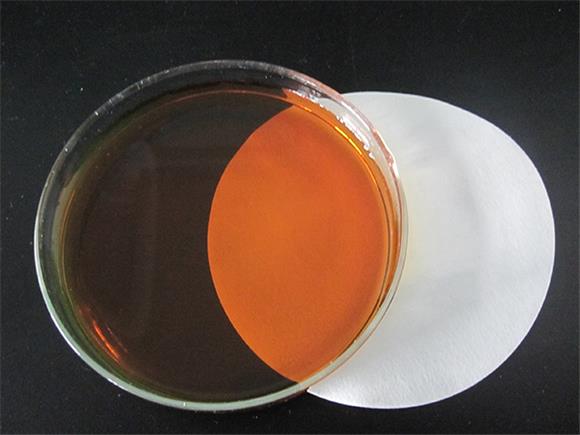
News
Lis . 25, 2024 16:06 Back to list
Production of Phosphonic Acid Chelating Agents for Effective Metal Ion Binding
The Role of Phosphonic Acid Chelating Agents in Industry
Phosphonic acid chelating agents have gained significant attention in recent years due to their unique chemical properties and versatility across various industrial applications. These agents are characterized by their ability to form stable complexes with metal ions, thus making them valuable in numerous fields, including agriculture, water treatment, and pharmaceuticals. This article delves into the significance of phosphonic acid chelating agents, their production, and their applications in diverse industries.
Understanding Phosphonic Acid Chelating Agents
Phosphonic acids are organic compounds that contain a phosphorus atom bonded to a carbon atom, alongside hydroxyl and alkoxy groups. Their chelating properties arise from the presence of multiple functional groups capable of coordinating with metal ions. This chelation process is essential for stabilizing metals in solution and preventing them from reacting with other substances, which can lead to undesirable outcomes.
The main advantage of phosphonic acid chelating agents over traditional organic chelators, like EDTA (ethylene diamine tetraacetic acid), is their increased stability under a wider range of environmental conditions, including variations in pH and temperature. This stability is crucial for their effectiveness in real-world applications.
Production of Phosphonic Acid Chelating Agents
The production process of phosphonic acid chelating agents involves several chemical reactions that transform simple phosphorus-containing compounds into more complex structures with chelating capabilities. Typically, the synthetic pathways include reactions between phosphonic acids and organic amines or carboxylic acids, leading to the formation of chelating agents with desirable properties.
Manufacturers often optimize their production processes to enhance efficiency and reduce costs. This includes the use of advanced catalytic systems, reaction optimizations, and purification techniques to yield high-quality phosphonic acid chelating agents that meet industry standards.
Applications in Agriculture
One of the primary applications of phosphonic acid chelating agents is in agriculture, where they are used to enhance nutrient availability in soils. They play a crucial role in improving the solubility of essential micronutrients, such as iron, manganese, and zinc. By chelating these metals, phosphonic acid agents prevent them from precipitating and becoming unavailable to plants, thus promoting better growth and yield.
phosphonic acid chelating agent factory

Moreover, phosphonic acid compounds are effective in combating plant diseases. They can enhance the efficacy of fungicides and promote plant resistance against pathogens. As a result, these agents contribute to sustainable agricultural practices by reducing the need for chemical inputs while optimizing plant health.
Water Treatment Solutions
In the water treatment industry, phosphonic acid chelating agents are employed for their ability to sequester metal ions, which can cause scaling and corrosion in water systems. Their application in cooling towers, boilers, and pipelines helps maintain system efficiency and prolong equipment lifespan.
Additionally, these agents can assist in wastewater treatment by binding heavy metals, facilitating their removal from water systems. This capability is particularly valuable in addressing environmental concerns related to metal contamination and ensuring compliance with regulatory standards.
Pharmaceutical and Other Industrial Applications
Phosphonic acid chelating agents also find use in the pharmaceutical industry, where they can enhance drug stability and bioavailability. Their ability to form complexes with certain metal ions can improve drug solubility and efficacy. This is particularly relevant in the development of metal-based therapeutics and diagnostic agents.
In other industrial applications, such as cosmetics and cleaning products, phosphonic acid chelating agents help improve formulation stability and effectiveness. They can bind to metal impurities that may degrade product quality, ensuring a higher standard of consumer safety and satisfaction.
Conclusion
Phosphonic acid chelating agents represent a vital class of compounds with broad applications across various industries. Their stability, efficiency in metal chelation, and environmental benefits position them as key players in agriculture, water treatment, and pharmaceuticals. As industries seek more sustainable and effective solutions, the role of phosphonic acid chelating agents will likely continue to grow, emphasizing the importance of research and development in this dynamic field. Manufacturers are encouraged to innovate further to unlock new potentials for these versatile agents, ultimately contributing to a more sustainable future.
-
Polyaspartic Acid Salts in Agricultural Fertilizers: A Sustainable Solution
NewsJul.21,2025
-
OEM Chelating Agent Preservative Supplier & Manufacturer High-Quality Customized Solutions
NewsJul.08,2025
-
OEM Potassium Chelating Agent Manufacturer - Custom Potassium Oxalate & Citrate Solutions
NewsJul.08,2025
-
OEM Pentasodium DTPA Chelating Agent Supplier & Manufacturer High Purity & Cost-Effective Solutions
NewsJul.08,2025
-
High-Efficiency Chelated Trace Elements Fertilizer Bulk Supplier & Manufacturer Quotes
NewsJul.07,2025
-
High Quality K Formation for a Chelating Agent – Reliable Manufacturer & Supplier
NewsJul.07,2025
